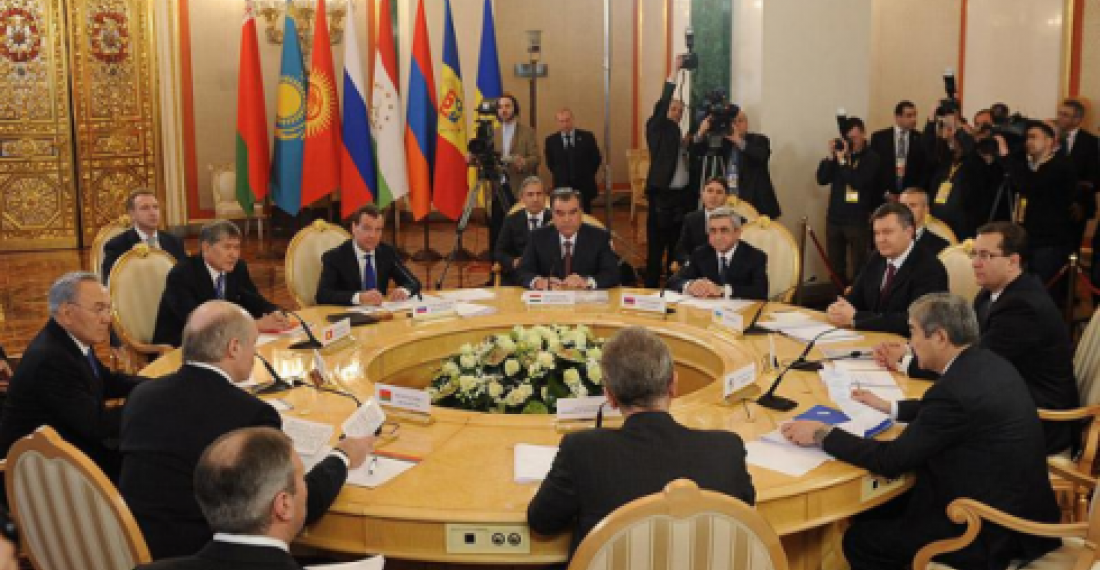A meeting of the Interstate Council of EurAsEc, the Eurasian Economic Community held yesterday in Moscow has paved the way for the establishment of full Customs Union and common economic space with effect from 1 January 2015. But there was a warning to those who decide to stay out.
Russian President Dimitri Medvedev said after the meeting, “We have said that we are forming the Customs Union and spoke about the advantages (of membership), and of certain disadvantages that may emerge and are already emerging for states that are not members of the Customs Union.” Medvedev addressed specifically Armenia, Moldova and Ukraine - the three Observer Members of EurAsEc whose leaders were also present at the summit. The countries that have observer status in Eurasec would benefit from joining the Customs Union, according to Medvedev.
Last October Russian Prime Minister Vladimir Putin urged Ukraine to forget "its political phobias of the past, look to the future,” and join the Customs Union. Ukraine has however so far resisted Russian pressure and has suggested a bilateral arrangement with the new Customs Union but not membership, an option that has been rejected by Russia. Ukrainian First Deputy Prime Minister Valeriy Khoroshkovskiy said Ukraine would switch to other markets if it faces trade limits with neighboring countries.
Moldova’s government is also not considering joining Customs Union according to the Moldovan Foreign Minister, Iurie Leanca who was speaking to Itar-Tass in Washington on Monday. While pursuing a course at integration in the European organizations, the incumbent Moldovan government has mapped out clearly “the understanding of our national interests” in the post-Soviet space, Leanca said.
The position of Armenia has however not yet been fully clarified. Armenia has strong economic relations with Russia. The Armenian leadership has traditionally leaned towards Russia in all major decisions, and Armenia is a member of the Russian led security organisation the CSTO. Membership of EurAsEC will however make Armenia even more dependent then it is now on Russia, and isolate it further from other global process. The Armenian leadership has therefore hesitated. No decision is likely before the upcoming parliamentary elections in May, but with the EurAsEc train now on its way Armenia will be obliged to make a final decision soon.
The next interstate council meeting of EurAsEc will be held in May - likely to coincide with the swearing in of Vladimir Putin as President of Russia. It is likely that the Russians will want a decision from the Armenians by this date.
source: commonspace.eu with Itar-Tass and RIA Novosti
photo: Leaders of EurAsEc member and observer countries in Moscow for the Interatste Council meeting on 19 March 2012 (picture courtesy of the Press Service of the President of Russia).







